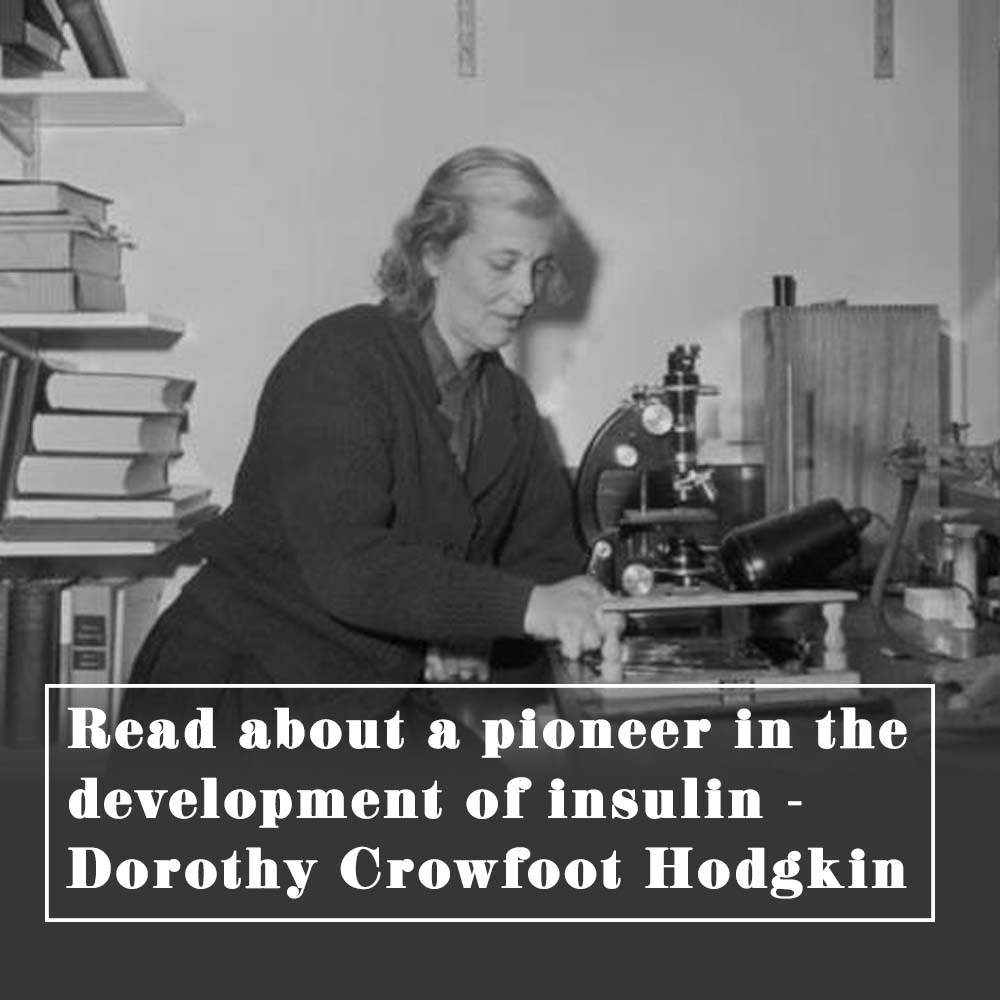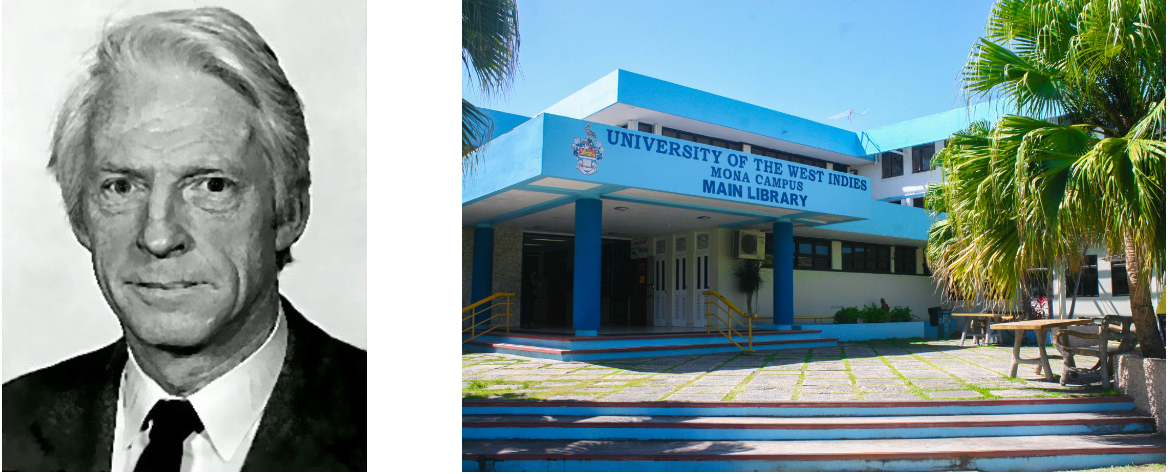
| Blogs and publications on this website are independent of any involvement by medtech companies or diabetes related charities. To ensure there is no bias, we do not accept any products, freebies or other material from any medtech provider. All materials are copyright©️Love My Libre Ltd. |
***
Dorothy Crowfoot Hodgkin

This International Women's Day we are celebrating a pioneer in the development of insulin, Dorothy Crowfoot Hodgkin. She certainly broke the bias - a theme of this year's IWD.
Dorothy Hodgkin, an English Chemist, was awarded the Nobel Prize for Chemistry in 1964. At the time she was only the third woman to achieve this accolade (after Marie Curie and Irene Joliot-Curie). To date she remains the only British woman to be awarded a Nobel Prize for science.
I was captured for life by chemistry and by crystals.
She was born in 1910 in Cairo, Egypt to English parents, but went to school in England, often separated from her mother, a botanist, and father, an archaeology educator. She expressed an interest in crystals at the age of 10 years old. but as a girl, she had to fight to study science at school along with the boys.
Dorothy later went on to study chemistry at Oxford University and she was one of the first undergraduates to study organic compounds using X-ray crystallography. Her work determining the three-dimensional structure of complex organic molecules led to her deciphering the structure of insulin, as well as penicillin and vitamin B12.
I used to say the evening that I develop the first x-ray photograph I took of insulin in 1935 was the most exciting moment of my life. But the Saturday afternoon in late July 1969, when we realised that the insulin electron density map was interpretable, runs that moment very close.

Above: Dorothy's depiction of insulin
Her contribution to science has been essential to advances in diabetes research, the development of alternative drug options and the mass production of insulin.
Despite suffering from rheumatoid arthritis, she had a long career in science and worked continuously to raise awareness of the need for insulin, giving many talks around the world on the significance of insulin for the future of diabetes research.
Dorothy was also a passionate advocate for worldwide peace and humanitarian causes.
In 1996 Dr. Dorothy Crowfoot Hodgkin was recognised for her contribution to science with the above commemorate stamp as part of the 20th Century Women of Achievement series by the Royal Mail.
💛💛💛
You can find out more about the Discovery of Insulin here and information about International Women's Day is on the website: www.internationalwomensday.com





Leave a comment (all fields required). Please note, we are unable to respond to individual comments posted here.